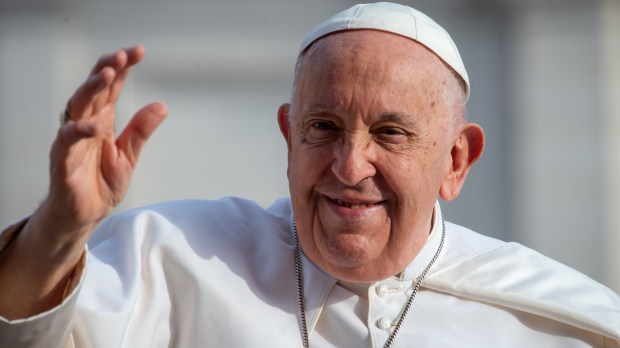This week, Pope Francis has chosen a Venezuelan layman, a doctor, as a model of how to proclaim the Gospel.
In his current general audience series, the Holy Father has been reaching around the planet to give examples of apostolic zeal — that is, eagerness, enthusiasm, and efficacy in sharing the message of Christ.
Among the role models he’s highlighted are those from Korea, France, Australia, North America, and the patroness of the Americas herself, Our Lady of Guadalupe.
Now, he’s turned to Latin America, to Blessed José Gregorio Hernández Cisneros.
First off, the Pope praised and encouraged mothers, as the Blessed recounted:
“My mother taught me virtue from the cradle, made me grow in the knowledge of God and gave me charity as my guide.” Let’s be attentive: It is the moms who pass on the faith. … And to you moms: Be diligent in passing on the faith in that maternal dialect.
A North Star
Pope Francis said charity was a “North Star” that oriented the whole existence of Blessed José Gregorio. With his natural talents, he became a doctor who was “first and foremost a doctor close to the weakest, so much so that he was known in his homeland as ‘the doctor of the poor.'”
To the riches of money he preferred the riches of the Gospel, spending his existence to aid the needy. In the poor, the sick, the migrants, the suffering, José Gregorio saw Jesus. The success he never sought in the world he received, and continues to receive, from the people, who call him “saint of the people,” “apostle of charity,” “missionary of hope.” Beautiful names: “saint of the people”, “apostle of the people”, “missionary of hope”.
Interestingly, José Gregorio had wanted to be a priest or religious, but was impeded from this path by his health problems.
“Physical frailty did not, however, lead him to close in on himself, but to become a doctor who was even more sensitive to the needs of others; he clung to Providence and, forged in his soul, went ever more toward what was essential. This is apostolic zeal:It does not follow one’s own aspirations, but openness to God’s designs.”
And along this path marked out by God’s will “he came to accept medicine as a priesthood: ‘the priesthood of human pain.'”
How to learn this lesson?
Pope Francis said that the Blessed’s enthusiasm came from the certainty of God’s grace and the strength of intimacy with God.
And in contact with Jesus, who offers himself on the altar for all, José Gregory felt called to offer his life for peace. The First World War was underway. So, we come to June 29, 1919: a friend comes to visit him and finds him very happy. José Gregorio has indeed learned that the treaty ending the war has been signed. His offering has been accepted, and it is as if he foresees that his work on earth is done. That morning, as usual, he had been at Mass, and now he goes down the street to bring medicine to a sick person. But as he crosses the road, he is hit by a vehicle; taken to the hospital, he dies pronouncing the name of Our Lady. So, his earthly journey ends, on a road while doing a work of mercy, and in a hospital, where he had made his work a masterpiece, as a doctor.
The Pope suggested that we ask ourselves if we respond as José Gregorio did, or if instead, we fall into the “plague” of idle chatter.
He spurs us to engagement in the face of the great social, economic, and political issues of today. So many people talk about it, so many complain about it, so many criticize and say that everything is going wrong. But that’s not what the Christian is called to do; instead, he is called to deal with it, to get his or her hands dirty: first of all, as St. Paul told us, to pray (cf. 1 Tim 2:1-4), and then not to engage in idle chattering – idle chatter is a plague – but to promote good, and to build peace and justice in truth. This, too, is apostolic zeal; it is the proclamation of the Gospel; and this is Christian beatitude: “blessed are the peacemakers” (Mt 5:9).
Let us go forward along the path of Blessed [José] Gregorio: a layman, a doctor, a man of daily work whom apostolic zeal drove to live performing charity throughout his whole life.


